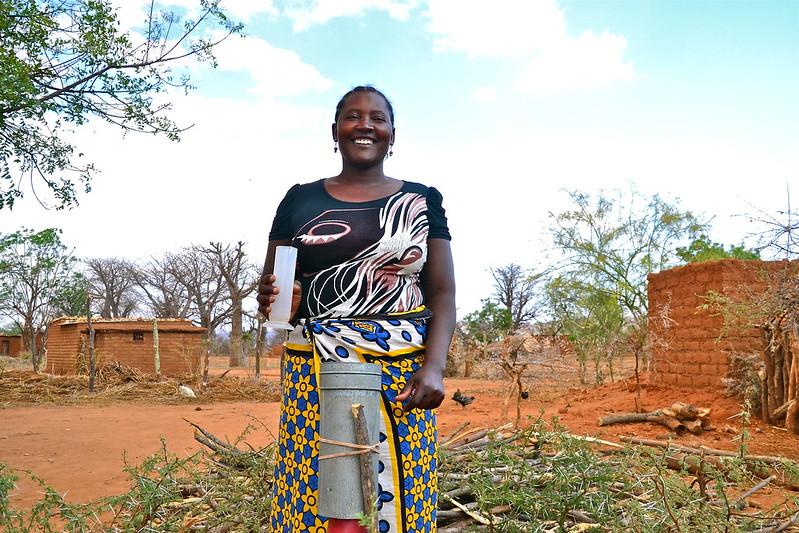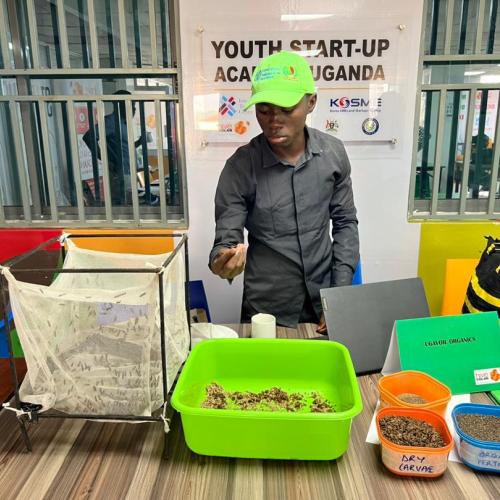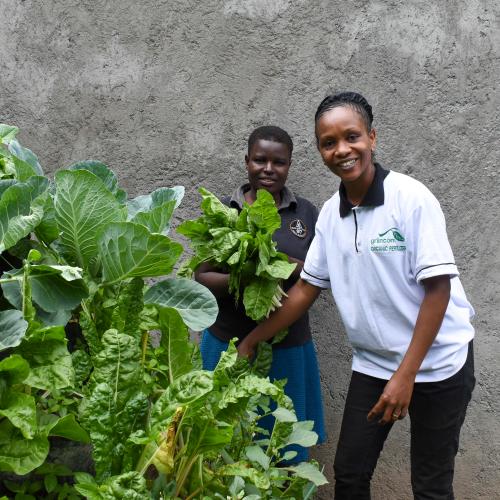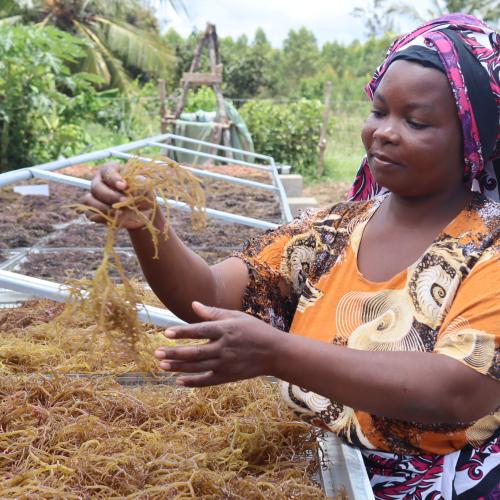Reorienting the private sector to enable climate-smart agricultural solutions to address gender inequalities

Context
East Africa struggles with recurrent droughts, floods, erratic rain patterns and other climatic fluctuations that impact crop production, and lead to food insecurity. Climate change is expected to increase this pressure on the region’s agricultural sector, which is 75% rain-fed, bringing high volatility in yields, rising temperatures and changing rainfall patterns. Furthermore, as the impacts of climate change compound, there would be significant food insecurity-related challenges in the region.
The agriculture sector is also part of the problem, however, as it places a serious burden on the environment. It is the largest consumer of water in the region, one of the chief sources of surface and ground water pollution, and a major emitter of greenhouse gases (GHGs). The pressure of increasing the region’s food production has also led to overexploitation of agriculture resources. This has reduced productivity growth due to land and soil degradation.
Women outnumber men in terms of participation in the African agricultural workforce; in 2019 it comprised 54% women as compared to 49% men. There is increased opportunity, therefore, for enhancing women’s economic empowerment through supporting the agricultural sector. Women farmers continue to have lower rates of agricultural productivity than men across the region, not because women are less efficient farmers, but because they do not have equitable access to agricultural inputs, land rights, and product markets; a challenge which has only deepened during the Covid-19 pandemic.
An FAO study suggests that agricultural productivity in sub-Saharan Africa could rise by 20% if women have equal access to inputs and land. Gender-transformative agricultural solutions will not only increase productivity, but also empower women in the sector (women as farmers, employees, consumers, beneficiaries, partners, etc.).
Objectives
The project aims to scale up Private Sector Enterprises (PSEs) providing climate-smart solutions (which support low-carbon development), and assist them in aligning their offerings to achieve positive outcomes for women’s economic empowerment. The project will support 10 PSEs over the project duration to use gender-transformative approaches to augment their climate-smart innovations and, consequently, their businesses. The key objectives of the project are to:
- Create evidence of impact of PSEs on women’s economic empowerment and low-carbon development – by undertaking periodic monitoring and evaluation to report the impact of enterprise support on women’s economic empowerment in the respective value chains, and the transition to a low-carbon economy.
- Develop a business case for investing in such PSEs – by creating and disseminating success stories to showcase the impact of these PSEs.
- Identify needs for capital and support needed by the PSEs – by offering bespoke support to PSEs and monitoring outcomes of this assistance to identify the most relevant support areas, along with suitable capital to help them scale.
- Understand women’s priorities and recommend approaches to PSEs for promoting women’s economic empowerment – by undertaking research (focus group discussions, interviews and surveys) with women customers/beneficiaries of these PSEs. This research will explore how PSEs can be gender transformative and simplify women’s access to means of production, business inputs and markets.
- Highlight the need for enabling policies and interventions – by interacting with sector stakeholders and investors to highlight policies and needs that could further enable such PSEs.
Partners
The project is led by Intellecap in collaboration with REPOA
Activities
The engagement will be undertaken across five phases of work:
Phase 1: Undertake preparatory research to understand the role that climate-smart PSEs are playing in mitigating the effects of climate change in the agriculture and food-systems sector, and simultaneously improving women’s access to economic opportunities.
- Conduct secondary research to understand the ecosystem of PSEs in the sector and their impact on women’s economic empowerment
- Design enterprise selection criteria for selecting climate-smart PSEs that have potential to create women's economic empowerment while transitioning to a low-carbon economy
- Design and launch a call for applications to source enterprises
Phase 2: Identify and on-board climate-smart PSEs for participation in this implementation-focussed research project
- Select 10 of the most relevant PSEs to participate in the programme offering different products/services across focus geographies
- Divide the 10 PSEs into 3 cohorts, to be inducted into the support programme on a rolling basis
- Undertake a detailed review and analysis of the operations of each PS
- Interact with approximately 50 customers and value-chain partners (including women) of each of the 10 PSEs to establish a baseline and identify areas for gender mainstreaming
- Identify relevant technical assistance interventions for each PSE based on the above interactions
Phase 3: Provide technical assistance support to selected PSEs over six months to implement support models/approaches that can be most instrumental in ensuring increased women participation in the sector
- Develop a customised gender action plan and advisory plan for each enterprise
- Support the enterprises through technical assistance to mainstream gender in pre-identified business aspects, and also scale-up the business as a whole
- Provide other associated support, such as identifying potential partners, access to networking opportunities, access to investors and investment-readiness support, if relevant
Phase 4 (to run in parallel with phases 2 and 3): Undertake monitoring and evaluation to identify and analyse intervention areas (financial and non-financial) that can be most instrumental in scaling these climate-smart PSEs, while enhancing women economic participation in the sector
- Develop a logical framework for each PSE, and at the programme level
- Create a data collection tool with specific gender impact metrics to be tracked
- Conduct baseline, midline and end line assessments over the course of the engagement
- Undertake routine monitoring of activities and outputs
Phase 5: Disseminate learnings to enhance knowledge on the role of climate-smart PSEs in women economic empowerment and develop a business case for investing in these businesses
- Develop knowledge documents and case studies on the PSEs in the cohort, and successes/failures of providing support to PSEs and learnings from the overall programme
- Organise workshops to share findings and convene sector stakeholders
Contact
Karnika Yadav, Director – Africa, Intellecap Advisory Services





